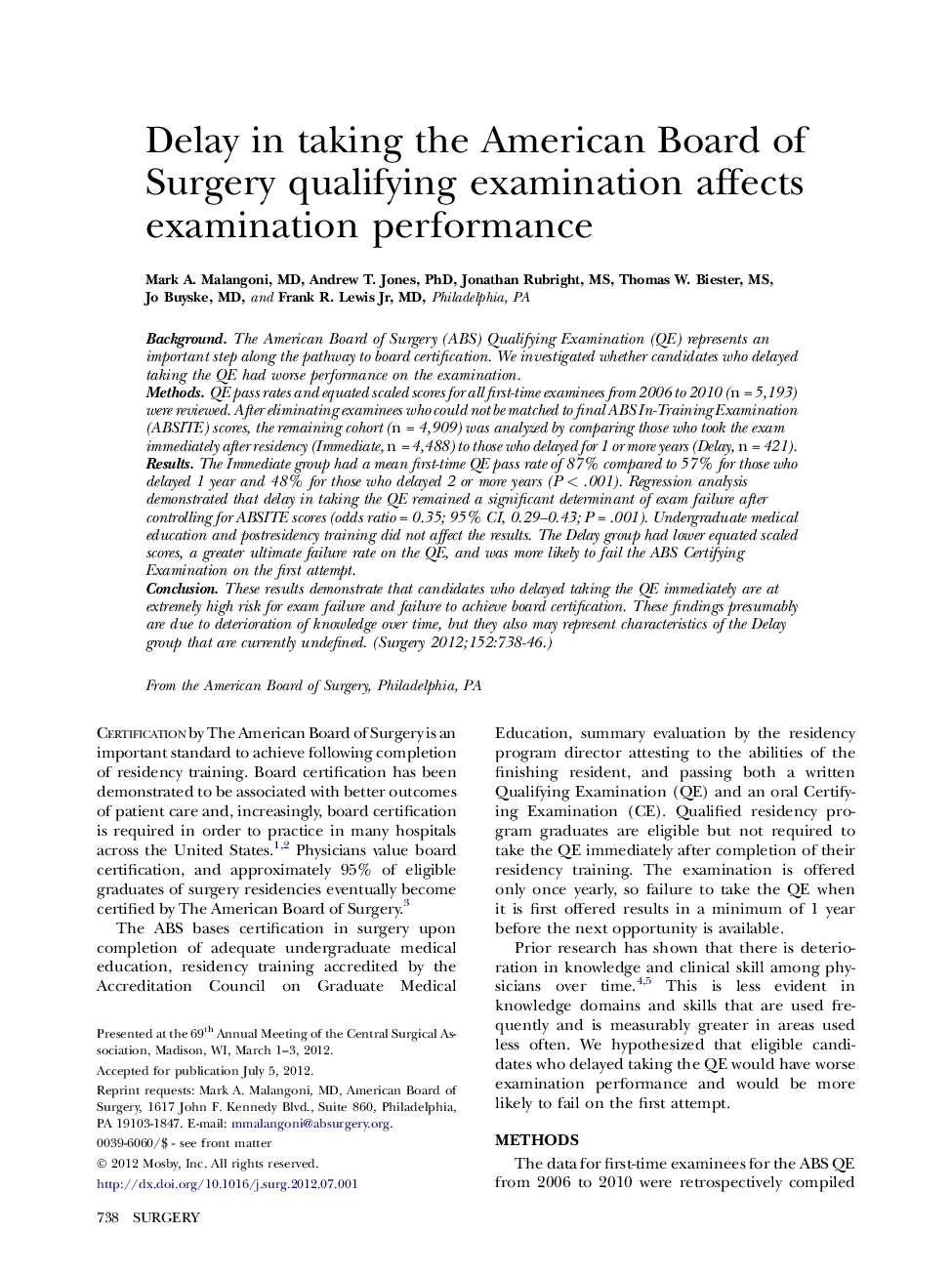| Article ID | Journal | Published Year | Pages | File Type |
|---|---|---|---|---|
| 4307842 | Surgery | 2012 | 9 Pages |
BackgroundThe American Board of Surgery (ABS) Qualifying Examination (QE) represents an important step along the pathway to board certification. We investigated whether candidates who delayed taking the QE had worse performance on the examination.MethodsQE pass rates and equated scaled scores for all first-time examinees from 2006 to 2010 (n = 5,193) were reviewed. After eliminating examinees who could not be matched to final ABS In-Training Examination (ABSITE) scores, the remaining cohort (n = 4,909) was analyzed by comparing those who took the exam immediately after residency (Immediate, n = 4,488) to those who delayed for 1 or more years (Delay, n = 421).ResultsThe Immediate group had a mean first-time QE pass rate of 87% compared to 57% for those who delayed 1 year and 48% for those who delayed 2 or more years (P < .001). Regression analysis demonstrated that delay in taking the QE remained a significant determinant of exam failure after controlling for ABSITE scores (odds ratio = 0.35; 95% CI, 0.29–0.43; P = .001). Undergraduate medical education and postresidency training did not affect the results. The Delay group had lower equated scaled scores, a greater ultimate failure rate on the QE, and was more likely to fail the ABS Certifying Examination on the first attempt.ConclusionThese results demonstrate that candidates who delayed taking the QE immediately are at extremely high risk for exam failure and failure to achieve board certification. These findings presumably are due to deterioration of knowledge over time, but they also may represent characteristics of the Delay group that are currently undefined.
